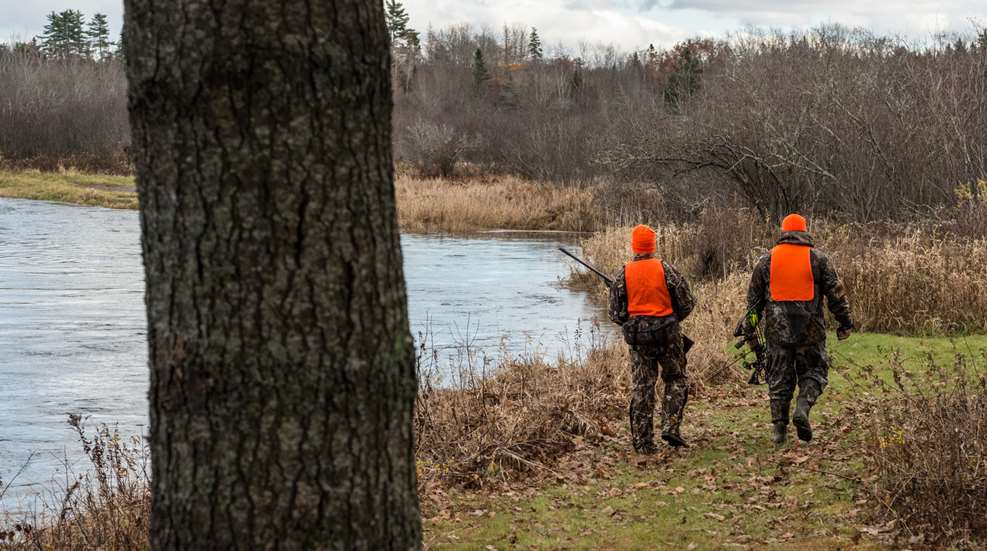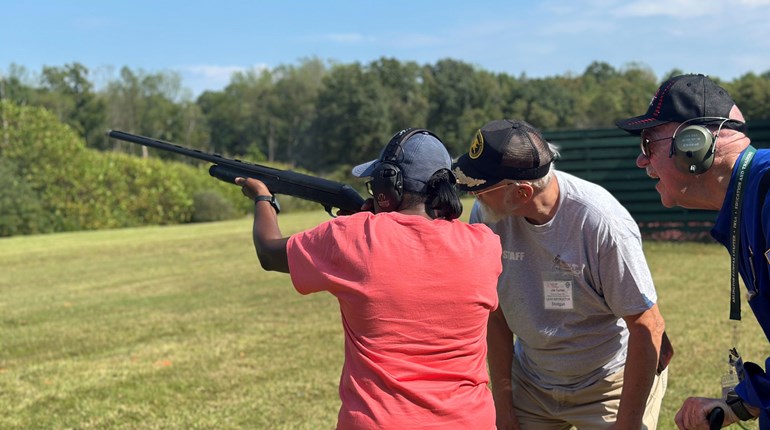
This situation usually arises on public land, but it can also happen on a private-land boundary: You’re set up in a duck blind, a treestand or an improvised hide for turkeys, when you notice another hunter set up way too close to you for your own comfort. What do you do?
“Don’t crowd each other” is an unspoken rule when hunting public land especially, but so is “first come, first served.” If you’re sitting in a treestand and someone comes walking in and begins to set up 40 yards from you, you have every right to ask him to move. Unfortunately, he has every right to say no. That’s just the breaks on public land.
If you’re hunting just inside a property line and someone on the adjacent property wants to hunt just inside their property line, and that happens to be 30 yards from your spot, well, you’re out of luck. Neither of you can legally set foot on someone else’s private land without permission, which means you’d better be darn careful about shooting a deer that might run over there, but you can’t stop each other from hunting the line.
The best way to handle this is to avoid it in the first place if you can. In the case of property lines, I like to set up at least 100 yards inside the property boundary to avoid other hunters on the next property over. If you and several others have permission to hunt a particular parcel, try teaming up with them and creating a pinboard (or even a Google doc) that lets everyone know who has claimed which stand for the day. Then everyone can stay away from each other and honor the first-come-first-served rule.
If it can’t be avoided and you find yourself in a too-close-for-comfort situation, the best way to handle it is to go talk to the other hunter. First, be clear on who was there first. If it wasn’t you, you’re probably the one who should be moving. Second, be exceedingly polite and approach this as a “how can we work this out” conversation rather than a “get out of my spot” confrontation. Most hunters are good folks, but you’re asking someone to give up a spot they probably feel attached to, and not everyone will take that well. Emotions run high in these situations, and don’t forget that everybody is armed.
If you get pushback or an outright refusal to move, my advice is to just get out. Lay down your pride and go—do not get into a physical fight with a total stranger in the middle of the woods over a hunting spot. If you are on private land and dealing with a trespasser, you can call a game warden and make a report. But on public land or a private parcel you both have permission to hunt, don’t waste the warden’s time. You have to settle this like adults, because it’s an ethical matter rather than a legal one. Many states have hunter harassment laws on the books, but setting up too close generally doesn’t fall under the definition of harassment, so this will not be a legal issue unless someone starts threatening, running through your setup or otherwise truly harassing you and intentionally ruining your hunt.
How close is too close? It depends on the game you’re hunting and the direction the other hunter is set up in. For deer hunters using rifles, I don’t want anyone within my line of sight for sure, and ideally I don’t like anyone hunting where they might shoot within the range I might shoot, which for me is about 300 yards. You wouldn’t want two hunters hunting the same greenfield, and you wouldn’t be happy if you were set up to hunt a food plot and another hunter set up on a travel corridor leading to the food plot. The same is true for waterfowl hunting: If birds are approaching from the north and someone sets up 100 yards north of you to cut them off, that’s going to feel close even though you’re not really in each other’s shooting space. In turkey hunting, where you’re trying to call birds to your location, any spot where another hunter is close enough to work your birds (another unspoken faux pas) is going to feel too close. Use your best judgement and understand that a certain amount of this is bound to happen on public land and you need to be able to roll with the punches.
Bottom line: Keep a cool head, be sure you know who is in the right (understanding that it could be both of you), have a calm discussion with the other hunter, and be willing to back down if they refuse, because this isn’t worth a big confrontation.















































